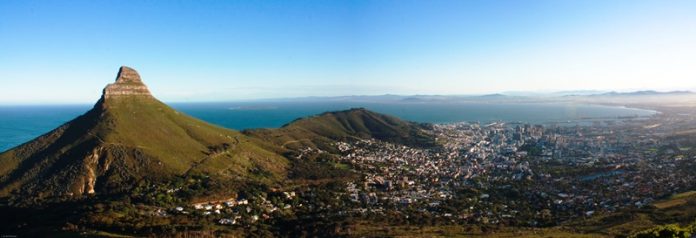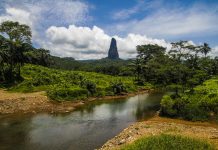Lion Head is a beautiful, distinctive shape mountain in Cape Town, South Africa. It is located between Table Mountain and Signal Hill with peaks of 2195 ft, above sea level. Lion’s Head peak forms part of a dramatic backdrop to the city of Cape Town and is part of the Table Mountain National Park. The suburbs of the city surround the peak and Signal Hill on almost all sides. The proud lion overlooks the city and Table Bay on one side, and the scenic Atlantic Ocean coastline on the other side.
It’s a great picnic place with the way it’d be scaled Lion’s Head, the panoramic views of the Mother City and its surrounding coastline were superb. Lion’s Head was famous with Leeuwen Kop (Lion Head’s) in the 17th century, and Signal Hill was as Leeuwen Staart (Lion’s Tail).
Lion’s Head shape resembles a crouching lion or a sphinx, and it is famous for outstanding views over the city. This place is famous for the hour-long walk to the top is mainly popular during a full moon, and the slopes are also famous for launching points for paragliders. Hiking Lion’s Head at full moon is something that you have to do at least once.
Moreover,; the upper part of the peak consists of flat-lying Table Mountain sandstone and the lower slopes are formed by the Cape Granite and the Malmesbury formation, which are older Precambrian rocks. Lion’s Head is covered in fynbos with remarkably rich biodiversity that supports a diversity of small animals.
Lion’s Head is covered in endangered Granite Fynbos, which fades into Peninsula Shale Renosterveld on the lower slopes towards Signal Hill in the north. Right on the summit of Lion Head. However, it is a tiny patch of endangered Sandstone Fynbos, a different ecosystem that is also found nearby on the top of Table Mountain.
Lion Head is the perfect place for viewing the sun rising, and sunsetting. On a sunny day, the views from Lion’s peak are spectacular and a great opportunity for taking photographs of the Cape Peninsula and Robben Island.
Read More – Best Cruising Destinations Around the World
















